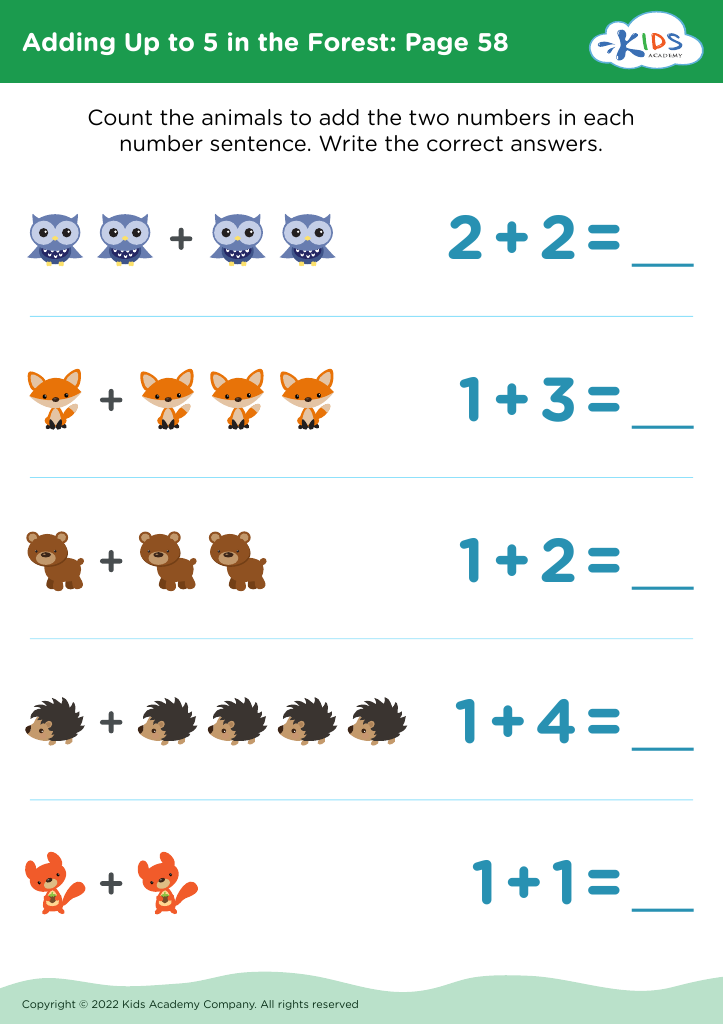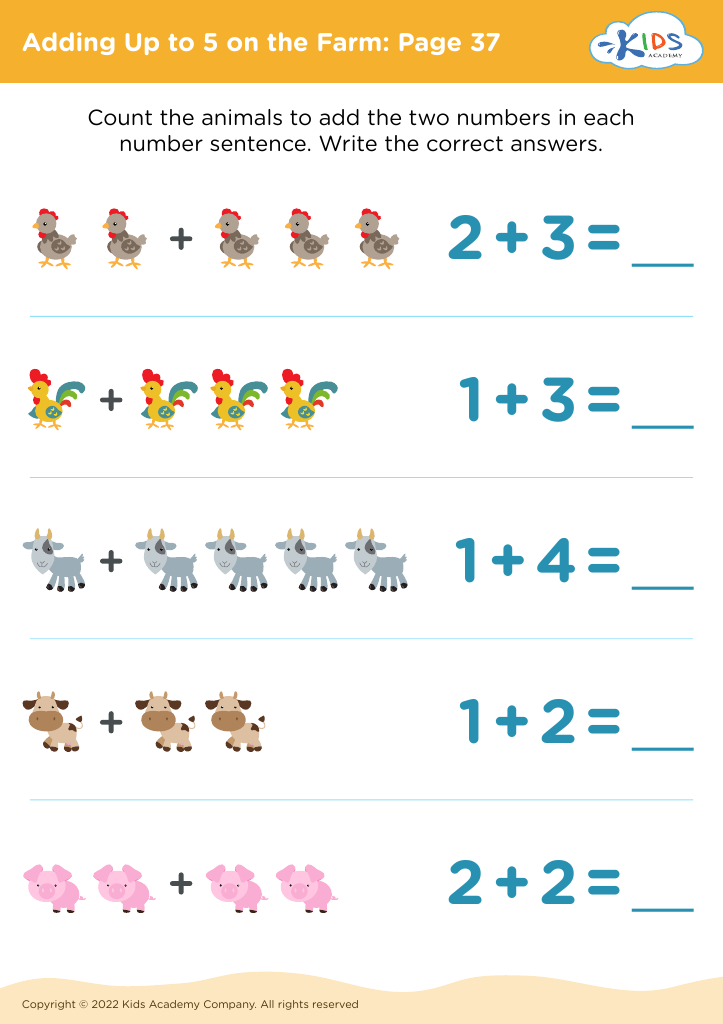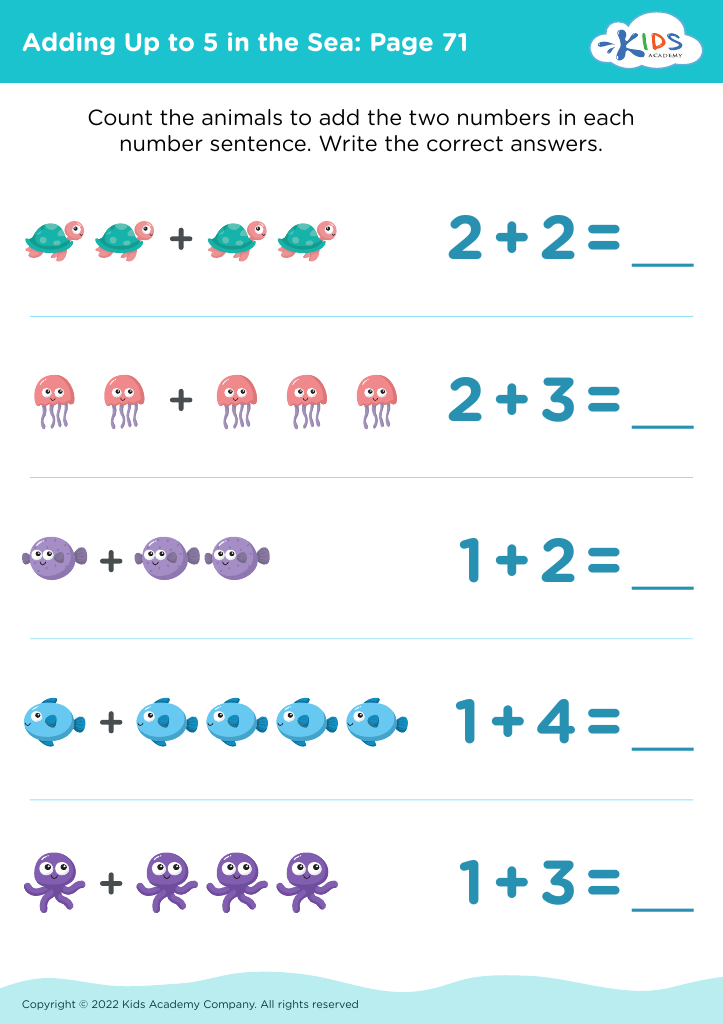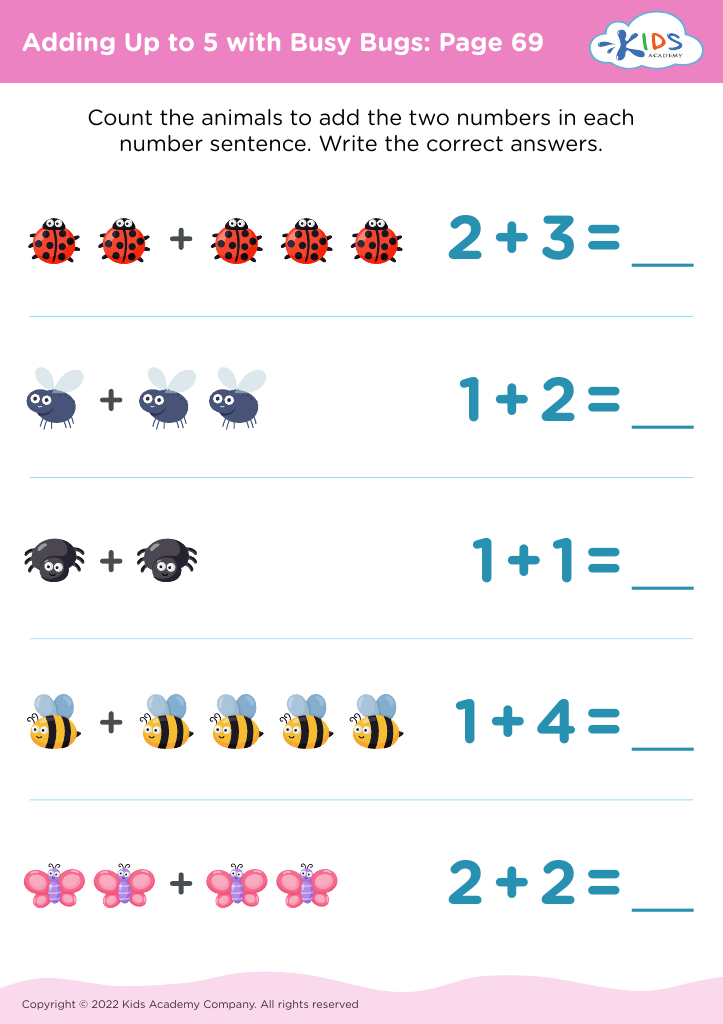Understanding numeracy Addition Worksheets for Ages 3-4
4 filtered results
-
From - To
Discover our engaging addition worksheets designed for children aged 3-4 to foster early numeracy skills. These worksheets feature playful activities that introduce basic addition concepts in a fun and interactive way, helping young learners understand how numbers work together. Each exercise encourages critical thinking and problem-solving while enhancing counting skills and number recognition. Aligned with educational standards, our resources ensure a solid math foundation, empowering kids for future learning. Perfect for parents and educators alike, our addition worksheets make math enjoyable and accessible, paving the way for confident learners. Start your child’s numeracy journey today with our thoughtfully crafted printables!
Understanding numeracy and addition for ages 3-4 is crucial for early developmental foundations that will benefit children throughout their lives. At this age, children are naturally curious and eager to explore mathematical concepts, making it an ideal time for parents and teachers to introduce the basics of addition. Engaging with numbers helps develop cognitive skills, supporting critical thinking and problem-solving abilities.
Teaching addition through fun, interactive methods can ignite a child's interest in math. Activities like counting objects, singing number songs, or engaging in simple hands-on games not only make learning enjoyable but also help kids grasp fundamental concepts such as quantity, comparison, and pattern recognition. These early experiences lay the groundwork for more complex mathematical understanding in later years.
Moreover, numeracy skills impact children’s confidence levels. A strong foundation in math can empower them, fostering resilience and a positive attitude toward learning. Parents and teachers working together to support numeracy development during this key period reshapes their attitudes towards education, ensuring that children see math as a valuable and enjoyable part of life. Ultimately, investing time and effort into teaching numeracy at ages 3-4 encourages lifelong learning habits and sets children on a path to future academic success.





















